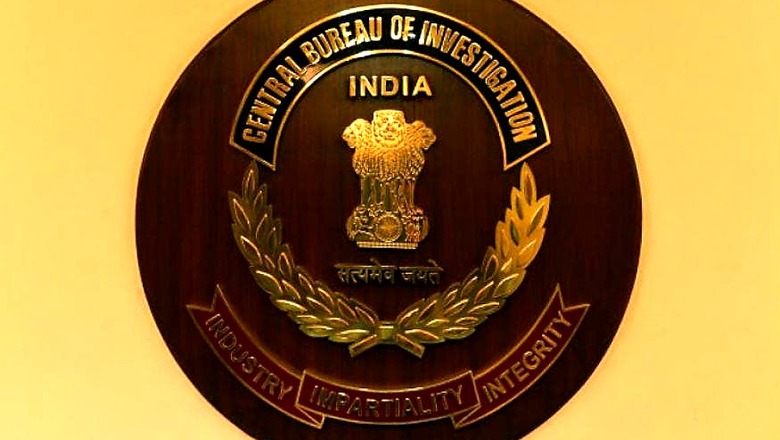
views
New Delhi: Massive shortage of officers at the CBI may hamper the quality of investigations and increase pendency, a Parliamentary panel said on Friday, asking the government to initiate necessary action to fill the posts.
Asserting that fraudsters are using increasingly innovative methods to bypass vigilance, it also asked probity watchdog Central Vigilance Commission (CVC) to improve vigilance administration by leveraging latest technologies.
On the infrastructure deficit being grappled by the CBI, the panel said the shortfall in the allocation of Rs 802 crore against the projection of over Rs 1,300 crore will "adversely affect" the agency's ability to invest in training, research, equipment and other support structures.
In a report tabled in the Rajya Sabha, the panel headed by BJP MP Bhupender Yadav observed that 789 posts in executive ranks, 77 posts of law officers and 415 posts of technical officers and staff were lying vacant.
The report said, "this leads to an inevitable conclusion that the Central Bureau of Investigation (CBI) is facing a massive shortage of personnel".
"The Committee thinks that it may increase pendency, hamper the quality of investigations and ultimately reduce the effectiveness and efficiency of the agency. The Committee, therefore, recommends that necessary action may be initiated to fulfil a large number of vacant posts in CBI on an urgent basis," it said.
The Department-Related Parliamentary Standing Committee on Personnel, Public Grievances, Law and Justice said the CBI has received an allocation of just Rs 802 crore against the projection of 1,386 crore made to the Ministry of Finance.
"This shortfall in allocation will adversely affect CBI's ability to invest in training, research, equipment and other support structures. The Committee is of the view that funds constraint should not impede CBI from discharging its mandate effectively and accordingly, recommends the government to provide adequate funds for meeting the growing needs of the country's premier investigating agency," it said.
The Committee noted that the persistent trend of underutilisation of funds meant for strengthening the infrastructure and modernisation of CBI.
"The underutilisation of funds points to deficiencies in planning and budgetary exercise and consistent failure to utilise the allocated funds," the report said.
The Committee is of the view that it is high time the deficiencies in their budgetary planning and expenditure are rectified and measures are taken to ensure maximum utilization of funds, the report said.
The panel also asked both the CBI and the government to ensure timely implementation of the prestigious 'Centralized Technology Vertical', a state-of-the-art technology centre, and build in-house central capacity for supporting specialised crime investigations dealing with digital forensic analysis, forensic accounting and fraud analytics, approved in 2016 and "has not seen the light of the day yet".
Further, International Centre of Excellence in Forensic Science and International Centre of Excellence in Investigation, which was announced long back, is still under
examination, it noted.
"The Committee recommends that both CBI and the government should introspect, identify the bottlenecks and devise remedial measures and take necessary measures to ensure timely implementation of the project," the panel said.
It also asked the CVC to improve vigilance administration.
The data from the National Crime Records Bureau and RBI shows that financial frauds have witnessed an exponential growth in recent years, the panel said.
"Fraudsters are using increasingly innovative methods to bypass vigilance. It is imperative that CVC stays one step ahead of fraudsters. The Committee recommends CVC to improve vigilance administration by leveraging latest technologies like blockchain technology, artificial intelligence and machine learning to strengthen preventive vigilance and disincentivise fraud," it said.
The committee also noted that Lokpal is not fully operational yet and suggests the ministry to expedite the process and ensure that the anti-corruption ombudsman becomes fully functional as soon as practicable.



















Comments
0 comment